A Complete Guide to Masjid Al Haram (The Grand Mosque)
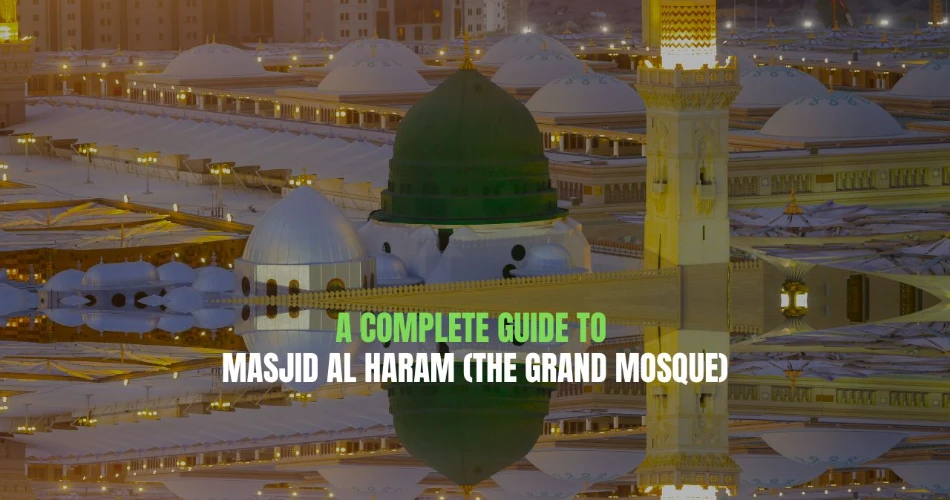
Located in Makkah, Saudi Arabia, Masjid Al Haram is the largest mosque in the world and the holiest site in Islam. From the Kaaba, the heart of the Islamic world, to the mesmerizing marble courtyards and sacred landmarks of the mosque, this magnificent site attracts millions every year. Whether it is your first time performing Umrah as a religious obligation, or you’re preparing for Hajj, or simply want to learn about the grandeur of this sacred place, this complete guide to Masjid Al Haram covers everything you need to know.
Keep reading to discover why visiting Masjid Al Haram is more than just a must-see destination in Makkah — it is a truly life-changing spiritual journey.
The Kaaba: The Spiritual Heart of Islam
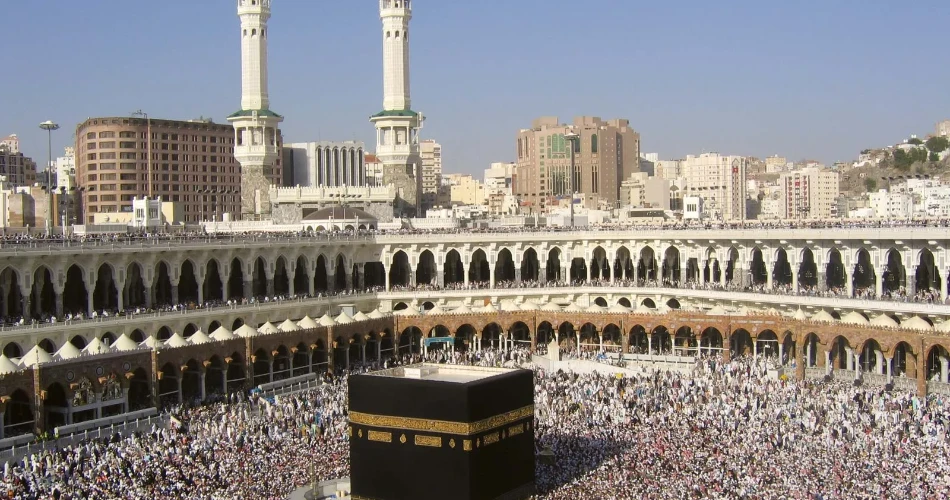
The Kaaba is the cube-shaped structure located at the center of Masjid Al Haram and is the holiest site toward which Muslims pray. It serves as the Qibla, the direction all Muslims face during prayer, making it the focal point of both the Hajj and Umrah pilgrimages. This sacred site draws millions of worshippers, making it one of the busiest and most spiritually significant spots within Masjid Al Haram.
Understanding Hajj and Umrah: Pilgrimages of a Lifetime
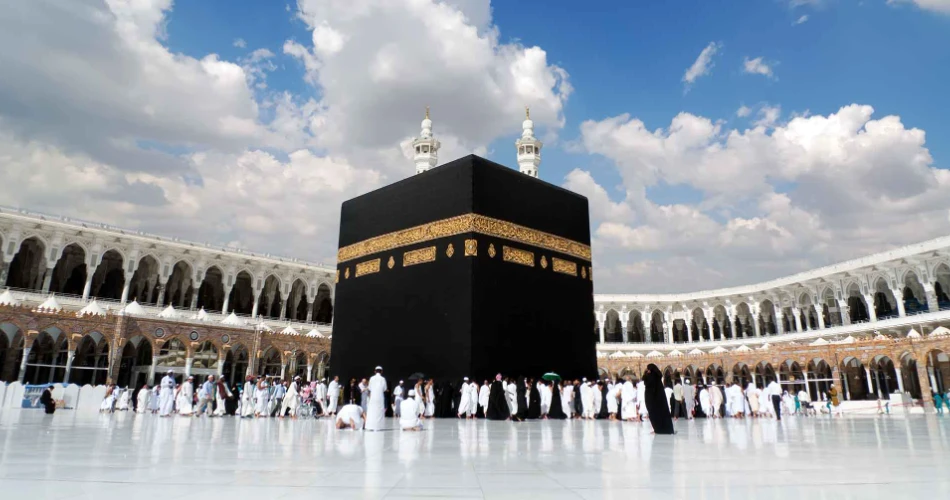
Umrah is a form of devotion and worship observed by Muslims worldwide. It involves traveling to Makkah to perform a series of rituals centered around the Kaaba, located within Masjid Al Haram. Pilgrims engage in du’a (supplication) and personal prayer as they seek to cleanse their minds and spirits. Umrah can be performed at any time of the year.
Hajj, on the other hand, is one of the five pillars of Islam and is considered a major pilgrimage. It is obligatory for every Muslim who is physically, mentally, and financially able to undertake it at least once in their lifetime. Occurring annually during the holy month of Dhul Hijjah — the last month of the Islamic lunar calendar — Hajj attracts millions of pilgrims worldwide. This profound act of worship symbolizes unity, submission, and devotion to Allah.
A Journey Through History: Origins of Masjid Al Haram
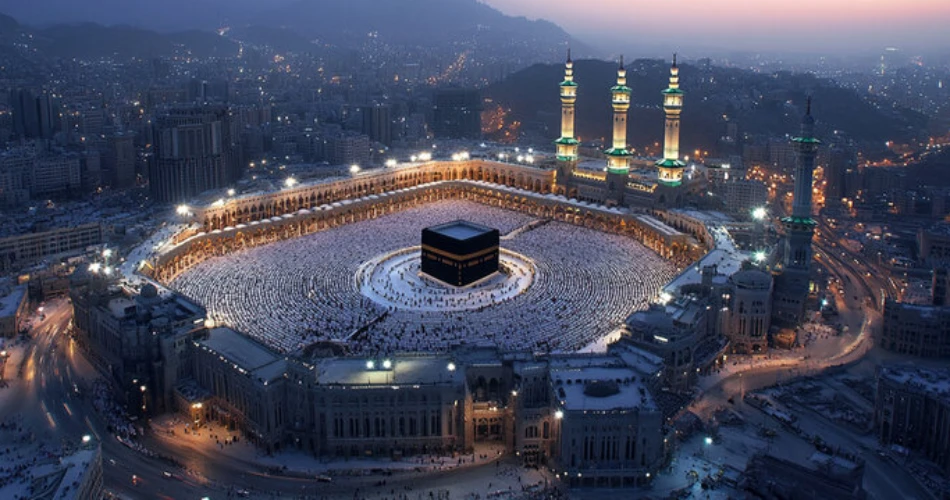
Masjid Al Haram’s history dates back to the era of Prophet Ibrahim (A.S.) and his son, Prophet Isma’il (A.S.). Since then, the mosque has been expanded multiple times to welcome the increasing number of worshippers who come to pray there.
The Black Stone: A Sacred Symbol of Faith
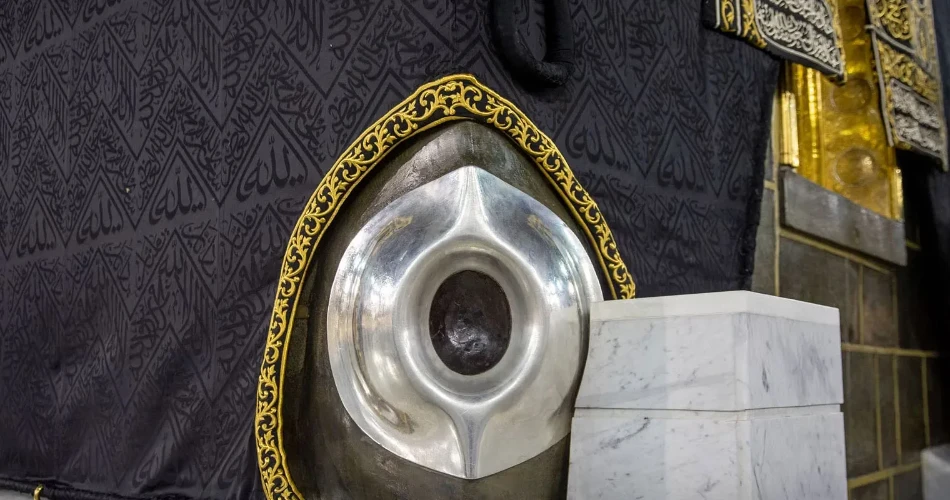
Set in the eastern corner of the Kaaba, the Black Stone (Hajar al-Aswad) holds special importance in Islam. Traditionally described as white, it is believed to have turned black due to absorbing the sins of those who touched it. Pilgrims often try to touch or kiss the Black Stone as an expression of submission, hope, and personal faith.
Maqam Ibrahim: The Footprint of Devotion
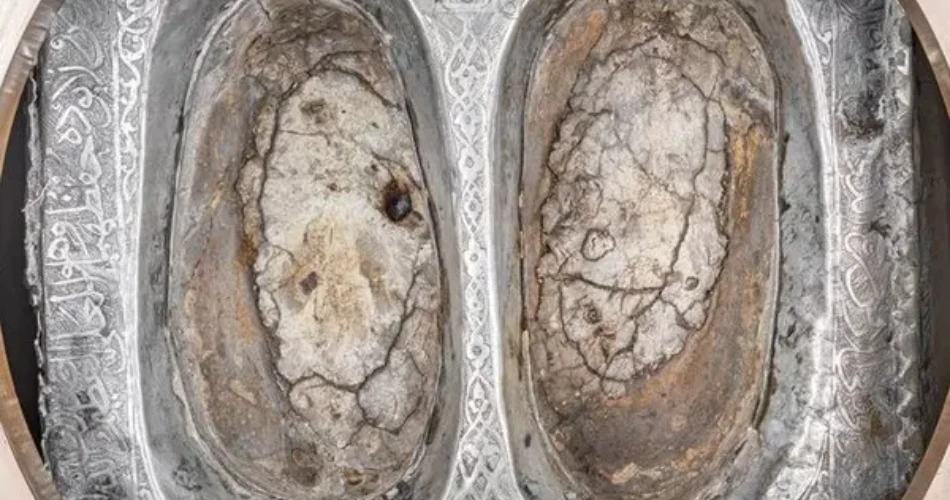
Maqam Ibrahim is a sacred stone near the Kaaba that bears the footprint of Prophet Ibrahim (A.S.). It symbolizes his unwavering faith and submission to Allah while laying the foundations of the Grand Mosque. Pilgrims often pray near Maqam Ibrahim as part of their worship.
Safa and Marwa: The Hills of Enduring Faith
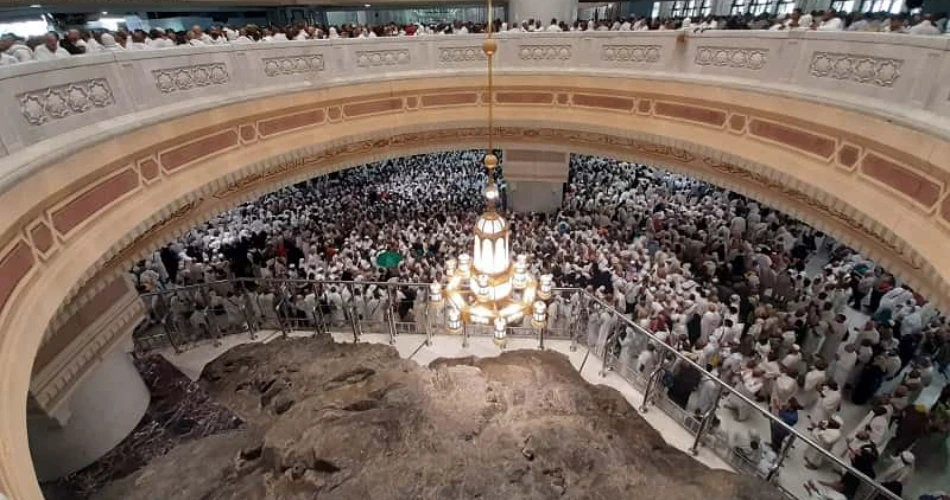
Within Masjid Al Haram lie the hills of Safa and Marwa, which hold profound religious significance for Muslims worldwide. These hills commemorate the story of Hagar, the wife of Prophet Ibrahim (A.S.), and her desperate search for water for her infant son, Isma’il. According to Islamic tradition, she ran seven times between the two hills, pleading for help. In response, Allah caused the Zamzam Well to emerge at her son’s feet.
Today, pilgrims reenact this journey through the Sa’i ritual, walking between Safa and Marwa seven times. The corridor where this is situated is air-conditioned, providing a comfortable and reflective space for worshippers.
Zamzam Well: The Blessed Source of Spiritual Refreshment
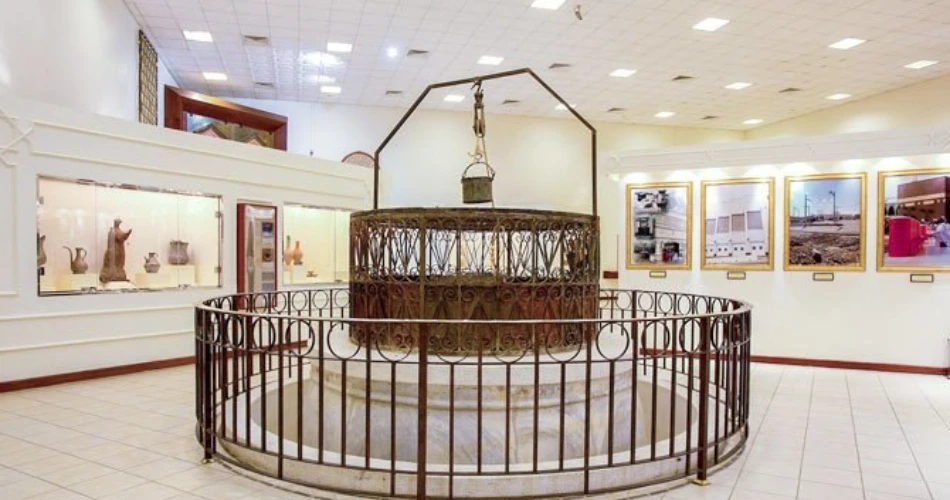
Located within Masjid Al Haram, the Zamzam Well is one of Islam’s most revered sites. Pilgrims drink its water during Hajj and Umrah, believing it to have healing properties and spiritual blessings.
Exploring the Sections of the Grand Mosque
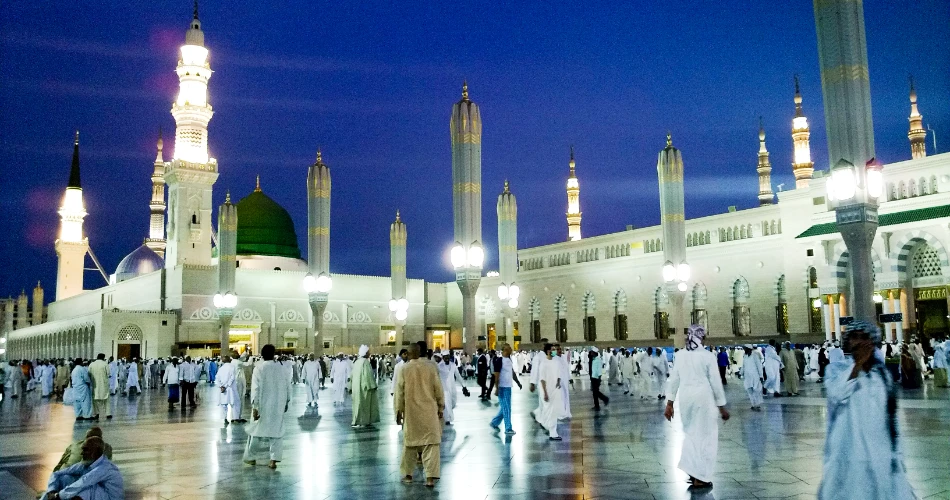
Masjid Al Haram isn’t just vast in size—it’s a marvel of Islamic architecture and thoughtful design, built to accommodate millions of pilgrims while preserving spiritual tranquility. From the sacred center of the Kaaba to the outer edges and upper levels, every part of the mosque is purposeful and deeply symbolic. Here's a closer look at some of its most important sections:
Kaaba Courtyard (Mataf): The Center of Tawaf Rituals
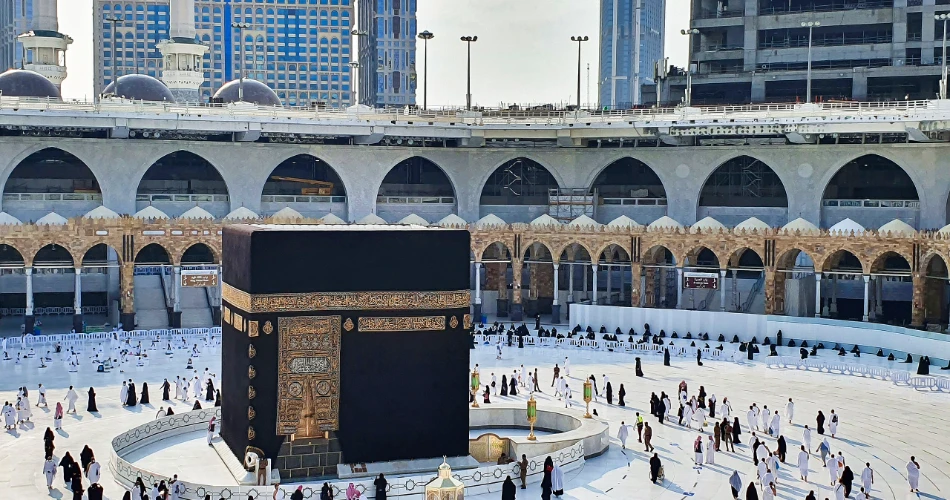
The Mataf is the marble-tiled area surrounding the Kaaba where Muslims perform Tawaf — the ritual of circumambulating the Kaaba during Hajj and Umrah. This spiritually significant courtyard is often crowded with worshippers, making it one of the busiest places in Makkah.
Abbasid Corridor: A Link to Islamic Heritage
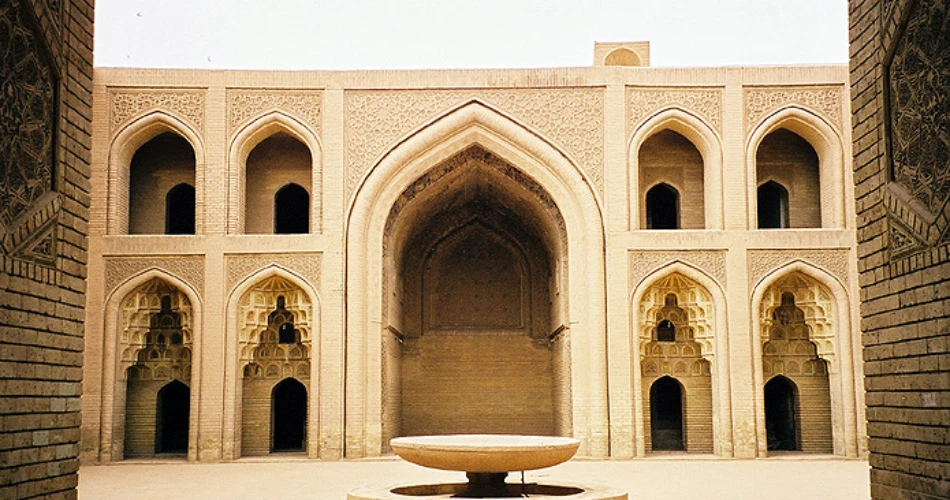
The Abbasid Corridor dates back to the Abbasid Caliph Muhammad al-Mahdi’s era. Despite changes over time and Saudi expansions, its original design has been preserved.
Outer Courtyards: Space for the Growing Pilgrim Crowd
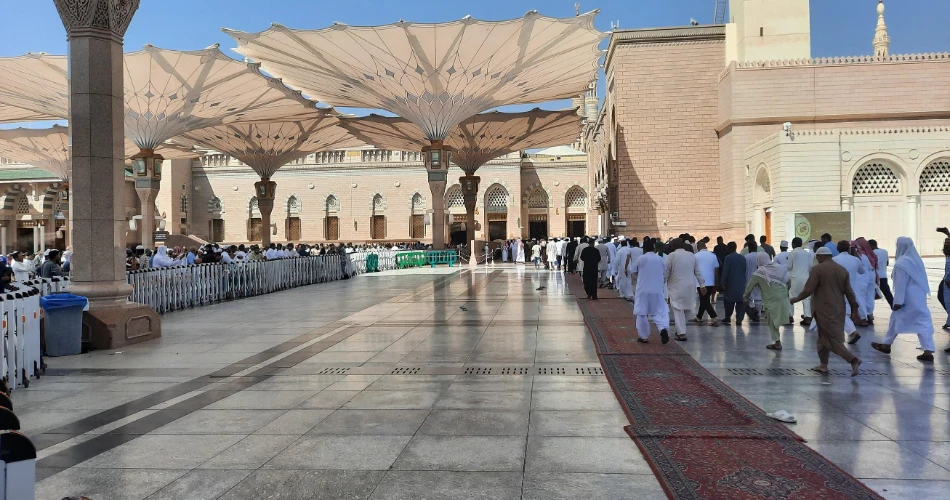
Built during the second Saudi expansion, these marble courtyards provide space for the growing number of worshippers, especially during peak pilgrimage seasons. The marble is designed to withstand heat, allowing comfortable prayers even under the sun.
Roof of the Grand Mosque: Expanding the Sacred Space
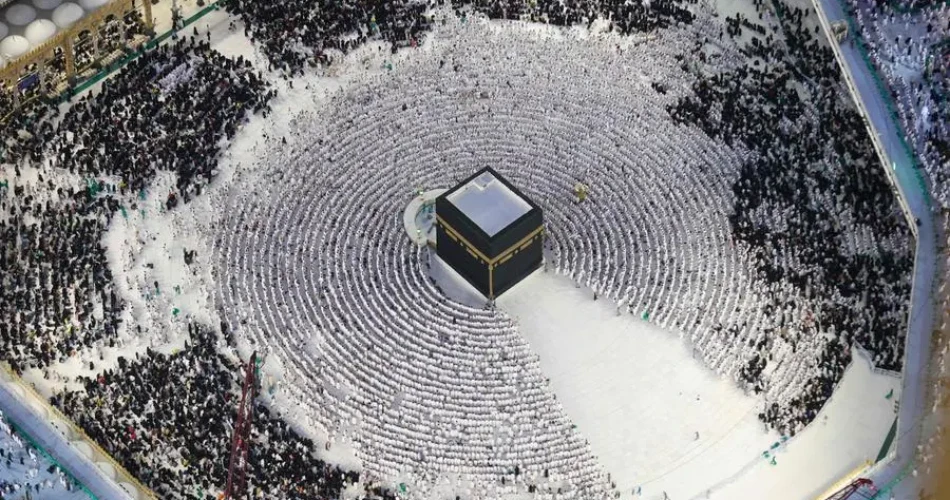
Also a part of the second expansion, the mosque’s roof has been adapted to create additional prayer space, offering direct views over the holy sanctuary.
Practical Tips for Pilgrims: Preparing for Your
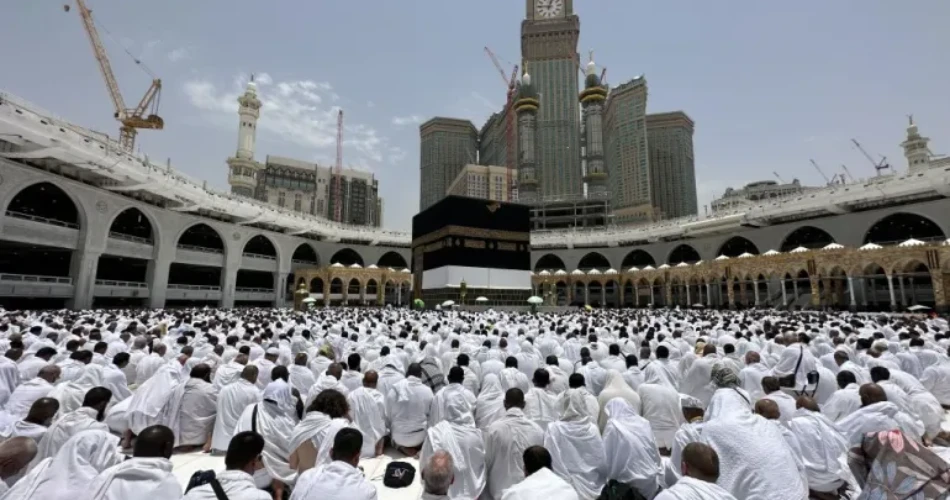
Spiritual Journey
Traveling to Masjid Al Haram is a deeply spiritual journey. To make the most of your experience, keep these tips in mind:
Dress Accordingly:
Wear modest, clean, and respectful clothing in line with Islamic guidelines, reflecting the sacredness of the site.
Pick the Right Time:
Visit during less crowded times to enjoy a calmer, more reflective experience.
Hydrate and Rest:
Stay hydrated and take breaks, especially during hot or busy periods, to maintain your energy and focus.
Getting ready for your journey to Makkah? Browse our curated list of top hotels and find the perfect place to stay.








